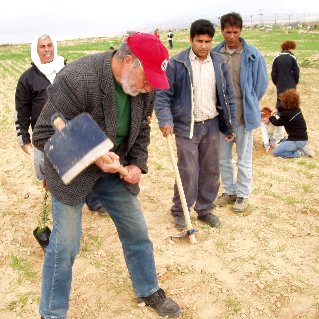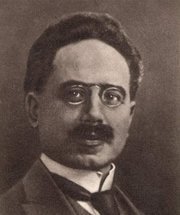Peace Pilgrim

From 1953 to 1981 a silver haired woman calling herself only "Peace Pilgrim" walked more than 25,000 miles on a personal pilgrimage for peace. She vowed to "remain a wanderer until mankind has learned the way of peace, walking until given shelter and fasting until given food." In the course of her 28 year pilgrimage she touched the hearts, minds, and lives of thousands of individuals all across North America.

http://www.peacepilgrim.net/
In 1952, the year before the pilgrimage, Peace Pilgrim (then Mildred Norman Ryder) became the first woman to walk the entire length of the Appalachian Trail in one season. Learn more about this historic journey. Read webmaster Bruce Nichols' account of his 2002 50th anniversary AT hike.
Inspired by Peace Pilgrim, others have taken up this path:
http://www.peacewalker.com/start.asp
In her own words:
Never underestimate the power of a loosely knit group working for a good cause. All of us who work for peace together, all of us who pray for peace together, are a small minority, but a powerful spiritual fellowship. Our power is beyond our numbers.
Those who seem to fail pave the way and often contribute more than those who finally succeed. I cannot help feeling grateful to the peace pioneers, who worked for peace when the going was rough and there were no apparent results.
***
One of the most common questions asked of me is: "Have you seen any results from your pilgrimage?" The answer is that I've never asked to see results - I leave the results in God's hands. They may not even be manifest in my lifetime, but eventually they will become manifest. And, believe it or not, I have seen results: Lots of letters from people indicating they have been inspired to do something for peace in their own way - anything from writing letters to Congress to making peace with some friend or relation. And it all adds up.
Peace will probably come to the world in the same way as it has come to our land. Out of the chaos of civil war, Indian wars and the duels of hundreds of years ago, has come order. Mechanisms have been set up to avoid physical violence, while psychological violence still endures. The smaller units, the states, have given up to the larger unit, the United States, the right to make war. Yes, I think the time will come when the smaller units, the nations, will give up to the larger unit, the United Nations, one single right: the right to make war.
I don't believe the nations would or should give up other rights. People have the most control over their affairs at a grass-roots level. Anything that can be fairly and efficiently handled at a grass-roots level should be thus handled, and only delegated to a higher authority when necessary.
The United Nations would have as its job maintaining a peaceful situation in the world. As long as we remain immature the UN would have a police force to deal with individual offenders against the peace of the world - by removing them, I would hope, for their rehabilitation. Also it should have an unarmed peace force to deal with war prevention. While our nation can deal with problems like an inadequate food supply, the UN would have to deal with problems like a country striving for freedom - and freedom is now the desire of all human hearts.
http://www.itstimetowakeup.com/Understand_Article_Pilgrim.html












